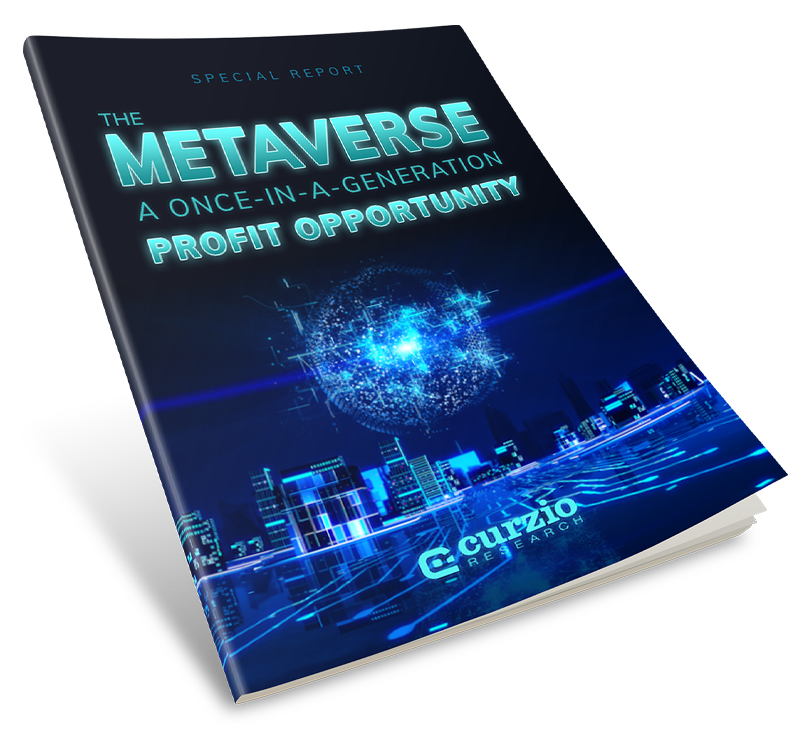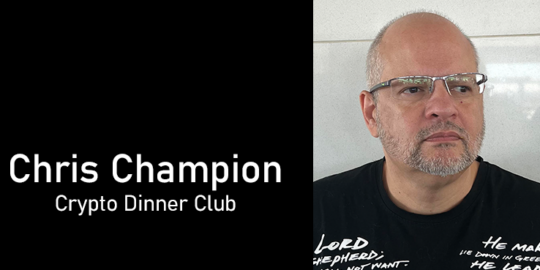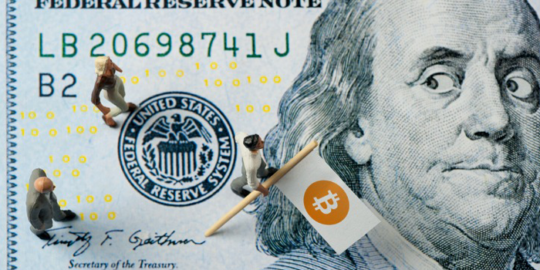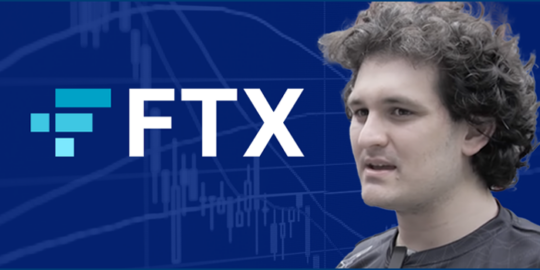Jay Clayton, chairman of the U.S. Securities and Exchange Commission (SEC), has historically not been a fan of the token markets. Many blame him for the dramatic price drops in bitcoin and other altcoins in late 2018.
But as Daniel Creech recently shared, he’s changed his tune…
On October 2, in a webinar held by the Chamber of Digital Commerce and blockchain startup Securrency, Clayton talked about the future of the stock market. He explained how all stocks are electronically represented today, compared to 20 years ago, when they were held via certificates. And that all stocks could become “tokenized.”
Many in the blockchain space know the potential of tokenization, but to hear it from the SEC chair is a big deal…
Today, I’ll break down why Clayton believes this could happen… and the benefits for companies and investors.
Tokenization is essentially the process of dividing an asset into digitized equities (or tokens). The tokens represent partial ownership, like a stock. Just about anything can now be “tokenized” on the blockchain. When backed by a secure asset, like a business, real estate, gold, oil, art, cars, or a stock, the token is called a “security token.”
Why Clayton sees tokenization as the future
As mentioned earlier, Clayton sees the potential for mass tokenization of stocks or exchange-traded funds (ETFs) if they increase efficiency and stay within the regulatory framework.
His main objections to cryptos and initial coin offerings (ICOs) is that these companies bypass SEC regulations.
For him to green-light stock or ETF tokens, the SEC would need to drive transformation. If a company or ETF provider demonstrated how its product would add efficiency to the market, and showed willingness to work with the SEC openly, Clayton is receptive.
Once one company, or ETF provider, finds a way to work with the SEC, the door is wide open for many more to follow.
Tokenization in practice
As Daniel explained, tokenization is also reducing the costs of raising capital, while giving Main Street investors access to investments that were formerly out of reach.
Suppose a corporation is looking to raise funds the traditional way. To do so, it needs to follow a stock exchange’s strict rules. Raising funds on a blockchain is more democratic, has lower costs, and allows for investors’ direct participation.
This is especially beneficial to smaller companies having trouble accessing capital due to high fees from Wall Street banks. Plus, individual investors can get access to early-stage growth companies, instead of waiting for the IPO—which usually come to market at multi-billion dollar valuations.
Buying a security token isn’t that different from buying a traditional share of a company. You’re investing in an underlying asset traded on a global exchange. But unlike “utility” tokens, security tokens have the added bonus of legal protection.
Hg Exchange (HGX) was launched early last year by the Taiwanese exchange MaiCoin and Singaporean blockchain platform Zilliqa. HGX built a service to allow companies to tokenize their shares, which would open them up for purchase to a wider pool of investors. The exchange kicked off trading last month.
Vanbex Labs, a blockchain services company in Canada, launched Rocket 2.0 last Spring. The platform enabled companies to tokenize their shares, selling to Hyperion Technologies that September. Hyperion considers itself “the world’s first digital token marketplace to issue & trade security tokens alongside traditional cryptocurrencies.”
As blockchain becomes more popular, more and more businesses will convert their equity shares to equity tokens. Smaller companies will consider raising assets from equity tokens, and investors will become more comfortable buying stock tokens.
Stock tokens would bring additional liquidity to the markets. They would also give foreign investors easier access to U.S. companies, since tokens can be traded around the clock.
At Curzio Research, founder and CEO Frank Curzio raised capital through the Curzio Equity Owners (CEO) token. This token will be available for public trading very soon… so keep an eye out for updates.
David Cohne has over 20 years of experience as an investment analyst and writer. He's consulted for hedge funds, financial services companies, and written for various financial news publishers. David also served as Director of Research for The Rankings Service and worked in portfolio management at Adviser Investments.
Editor’s Note: To help our readers better understand how security tokens work… and the massive opportunity this market offers… we’ve partnered with our friends at Security Token Advisors to create a free special report, 10 Things Everyone Should Know About Security Tokens. Get your copy here.
David Cohne has over 20 years of experience as an investment analyst and writer. He's consulted for hedge funds, financial services companies, and written for various financial news publishers. David also served as Director of Research for The Rankings Service and worked in portfolio management at Adviser Investments.











Jay Clayton, chairman of the U.S. Securities and Exchange Commission (SEC), has historically not been a fan of the token markets. Many blame him for the dramatic price drops in bitcoin and other altcoins in late 2018.
But as Daniel Creech recently shared, he’s changed his tune…
On October 2, in a webinar held by the Chamber of Digital Commerce and blockchain startup Securrency, Clayton talked about the future of the stock market. He explained how all stocks are electronically represented today, compared to 20 years ago, when they were held via certificates. And that all stocks could become “tokenized.”
Many in the blockchain space know the potential of tokenization, but to hear it from the SEC chair is a big deal…
Today, I’ll break down why Clayton believes this could happen… and the benefits for companies and investors.
Tokenization is essentially the process of dividing an asset into digitized equities (or tokens). The tokens represent partial ownership, like a stock. Just about anything can now be “tokenized” on the blockchain. When backed by a secure asset, like a business, real estate, gold, oil, art, cars, or a stock, the token is called a “security token.”
Blockchain technology is central to tokenization. For those who don’t know, a blockchain is a secure digital ledger. Introduced in 2011, it allows for the creation of bitcoin and other cryptocurrencies. The blockchain records and secures each transaction, which eliminates the need for third party processing (like a bank). Each transaction is encrypted in an algorithm called a “block.” When a transaction is completed, the block is added to a chain, and then another block begins with a new transaction. This forms a constantly growing blockchain.
A blockchain verifies transactions in real-time. This makes buying and selling faster and more efficient. With tokenization, smart contracts will streamline the process of creating shares, and the buying and selling of shares thereafter.
Blockchain transactions are already streamlining operations and reducing costs for corporations, with companies like Overstock, Visa, and Pfizer adopting the technology.
Why Clayton sees tokenization as the future
As mentioned earlier, Clayton sees the potential for mass tokenization of stocks or exchange-traded funds (ETFs) if they increase efficiency and stay within the regulatory framework.
His main objections to cryptos and initial coin offerings (ICOs) is that these companies bypass SEC regulations.
For him to green-light stock or ETF tokens, the SEC would need to drive transformation. If a company or ETF provider demonstrated how its product would add efficiency to the market, and showed willingness to work with the SEC openly, Clayton is receptive.
Once one company, or ETF provider, finds a way to work with the SEC, the door is wide open for many more to follow.
Tokenization in practice
As Daniel explained, tokenization is also reducing the costs of raising capital, while giving Main Street investors access to investments that were formerly out of reach.
Suppose a corporation is looking to raise funds the traditional way. To do so, it needs to follow a stock exchange’s strict rules. Raising funds on a blockchain is more democratic, has lower costs, and allows for investors’ direct participation.
This is especially beneficial to smaller companies having trouble accessing capital due to high fees from Wall Street banks. Plus, individual investors can get access to early-stage growth companies, instead of waiting for the IPO—which usually come to market at multi-billion dollar valuations.
Buying a security token isn’t that different from buying a traditional share of a company. You’re investing in an underlying asset traded on a global exchange. But unlike “utility” tokens, security tokens have the added bonus of legal protection.
Hg Exchange (HGX) was launched early last year by the Taiwanese exchange MaiCoin and Singaporean blockchain platform Zilliqa. HGX built a service to allow companies to tokenize their shares, which would open them up for purchase to a wider pool of investors. The exchange kicked off trading last month.
Vanbex Labs, a blockchain services company in Canada, launched Rocket 2.0 last Spring. The platform enabled companies to tokenize their shares, selling to Hyperion Technologies that September. Hyperion considers itself “the world’s first digital token marketplace to issue & trade security tokens alongside traditional cryptocurrencies.”
As blockchain becomes more popular, more and more businesses will convert their equity shares to equity tokens. Smaller companies will consider raising assets from equity tokens, and investors will become more comfortable buying stock tokens.
Stock tokens would bring additional liquidity to the markets. They would also give foreign investors easier access to U.S. companies, since tokens can be traded around the clock.
At Curzio Research, founder and CEO Frank Curzio raised capital through the Curzio Equity Owners (CEO) token. This token will be available for public trading very soon… so keep an eye out for updates.
Editor’s Note: To help our readers better understand how security tokens work… and the massive opportunity this market offers… we’ve partnered with our friends at Security Token Advisors to create a free special report, 10 Things Everyone Should Know About Security Tokens. Get your copy here.